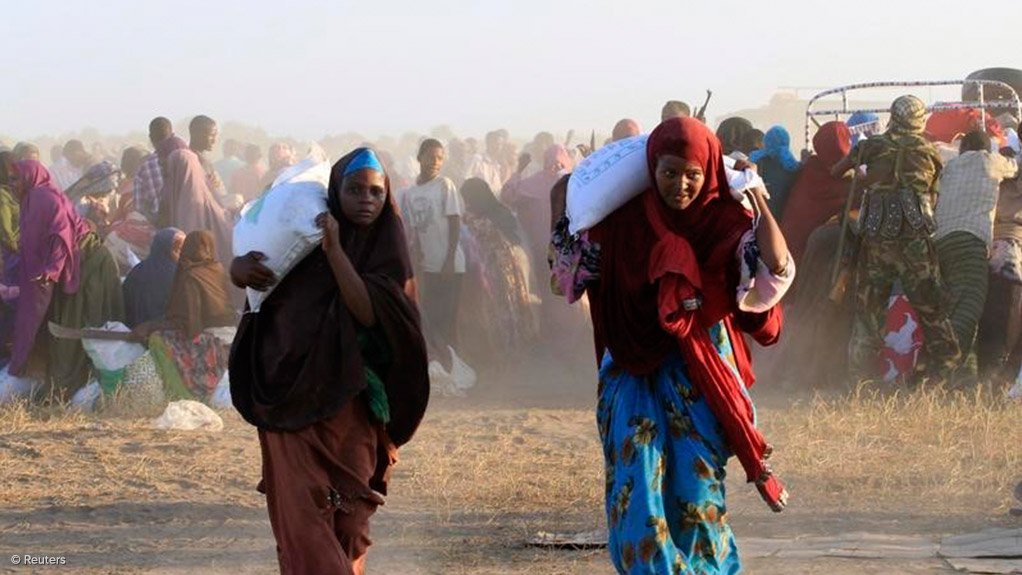The humanitarian crisis in Somalia is worsening, a senior United Nations (UN) official has told the Security Council, calling for more than $800-million in aid to offset the impact of a severe drought in a country that is already battling insecurity and poverty.
“The humanitarian crisis has deteriorated more rapidly than was originally projected,” the Deputy Special Representative of the Secretary-General for Somalia, Raisedon Zenenga, told the Council in New York.
He said that people are dying and need protection, particularly women and children, as drought conditions force them to migrate from rural areas to town, and as sexual violence increases in displacement camps.
“The scaled up response by humanitarian agencies has averted a famine in the country thus far, but the crisis is unlikely to abate any time soon. The needs for humanitarian assistance are increasing faster than the pace of response,” said Zenenga, who is also the deputy of the UN Assistance Mission in Somalia or UNISOM.
At least $669-million has been received or pledged for the effort, leaving a gap of $831-million in the revised 2017 Humanitarian Response Plan.
More than six-million people are affected, of whom only about three-million have been reached with food rations.
In the longer-term, the country’s structural problems must be addressed and resilience built, so the country can withstand extreme climatic conditions, the senior UN official said.
Peacebuilding and State-building Aside from the humanitarian needs, Somalia faces continued insecurity, predominantly from Al Shabaab.
In the address, Zenenga applauded the Security Council-mandated African Union troops, known as AMISOM, which have provided “the backbone of security in Somalia over the past 10 years”.
He called on donor countries to assist with “predictable funding,” ideally through assessed contributions, to support the troops.
The call echoes that of the Special Representative Michael Keating, who took part last week in the London Conference on Somalia.
As a result of the Conference, the international community reached a security agreement and defined a so-called New Partnership for the country, which sets out a framework to meet the Government’s priority political, security and economic recovery plan. A follow-up meeting is planned for October.
These efforts build towards universal elections which are scheduled for 2020, what Zenenga called “a defining litmus test of the progress made towards a properly functioning State.”
This past February, the Parliament elected Mohamed Abdullahi Farmaajo to be the new President since direct elections
In 2020, Somalia aims to hold direct elections. Ahead of that vote, building up the country’s security and police force, so that it can start taking over responsibility from AMISOM, is a top priority.
EMAIL THIS ARTICLE SAVE THIS ARTICLE
To subscribe email subscriptions@creamermedia.co.za or click here
To advertise email advertising@creamermedia.co.za or click here











